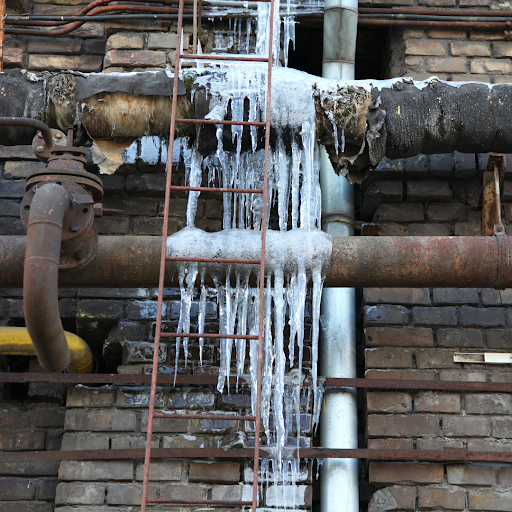Crucial Tips to Prevent Frozen Plumbing in Winter
Crucial Tips to Prevent Frozen Plumbing in Winter
Blog Article
Everybody will have their private piece of advice about Helpful Tips to Prevent Frozen Pipes this Winter.

Winter can wreak havoc on your plumbing, specifically by freezing pipelines. Here's exactly how to stop it from occurring and what to do if it does.
Intro
As temperatures decline, the threat of icy pipelines increases, possibly causing pricey repairs and water damages. Understanding exactly how to avoid frozen pipes is essential for home owners in cold climates.
Understanding Frozen Pipelines
What creates pipelines to freeze?
Pipelines ice up when subjected to temperatures below 32 ° F (0 ° C) for extended durations. As water inside the pipes freezes, it increases, putting pressure on the pipe walls and potentially causing them to rupture.
Threats and damages
Frozen pipelines can lead to water system disturbances, residential property damages, and expensive repair work. Burst pipes can flood homes and trigger substantial architectural damages.
Indications of Frozen Water Lines
Determining icy pipes early can avoid them from bursting.
How to identify icy pipelines
Search for reduced water flow from taps, uncommon odors or sounds from pipelines, and visible frost on subjected pipes.
Avoidance Tips
Protecting at risk pipelines
Cover pipes in insulation sleeves or make use of warm tape to protect them from freezing temperatures. Concentrate on pipes in unheated or external locations of the home.
Heating strategies
Maintain indoor spaces sufficiently warmed, particularly locations with plumbing. Open up cupboard doors to permit warm air to distribute around pipelines under sinks.
Protecting Exterior Plumbing
Garden tubes and outdoor faucets
Separate and drain pipes garden hose pipes prior to winter months. Set up frost-proof faucets or cover outdoor faucets with shielded caps.
What to Do If Your Pipes Freeze
Immediate actions to take
If you think frozen pipes, keep faucets open to ease pressure as the ice melts. Use a hairdryer or towels soaked in hot water to thaw pipelines gradually.
Long-Term Solutions
Architectural modifications
Think about rerouting pipes far from outside walls or unheated areas. Include additional insulation to attics, cellars, and crawl spaces.
Updating insulation
Purchase high-grade insulation for pipelines, attics, and walls. Correct insulation aids preserve constant temperatures and reduces the threat of frozen pipes.
Verdict
Protecting against icy pipes calls for positive steps and fast actions. By understanding the reasons, signs, and safety nets, property owners can protect their pipes throughout cold weather.
5 Ways to Prevent Frozen Pipes
Drain Outdoor Faucets and Disconnect Hoses
First, close the shut-off valve that controls the flow of water in the pipe to your outdoor faucet. Then, head outside to disconnect and drain your hose and open the outdoor faucet to allow the water to completely drain out of the line. Turn off the faucet when done. Finally, head back to the shut-off valve and drain the remaining water inside the pipe into a bucket or container. Additionally, if you have a home irrigation system, you should consider hiring an expert to clear the system of water each year.
Insulate Pipes
One of the best and most cost-effective methods for preventing frozen water pipes is to wrap your pipes with insulation. This is especially important for areas in your home that aren’t exposed to heat, such as an attic. We suggest using foam sleeves, which can typically be found at your local hardware store.
Keep Heat Running at 65
Your pipes are located inside your walls, and the temperature there is much colder than the rest of the house. To prevent your pipes from freezing, The Insurance Information Institute suggests that you keep your home heated to at least 65 degrees, even when traveling. You may want to invest in smart devices that can keep an eye on the temperature in your home while you’re away.
Leave Water Dripping
Moving water — even a small trickle — can prevent ice from forming inside your pipes. When freezing temps are imminent, start a drip of water from all faucets that serve exposed pipes. Leaving a few faucets running will also help relieve pressure inside the pipes and help prevent a rupture if the water inside freezes.
Open Cupboard Doors
Warm your kitchen and bathroom pipes by opening cupboards and vanities. You should also leave your interior doors ajar to help warm air circulate evenly throughout your home.

We had been shown that editorial about How To Avoid Freezing Pipes from someone on another website. Are you aware of somebody who is serious about the topic? Do not hesitate to promote it. Thanks for your time spent reading it.
Call Today Report this page